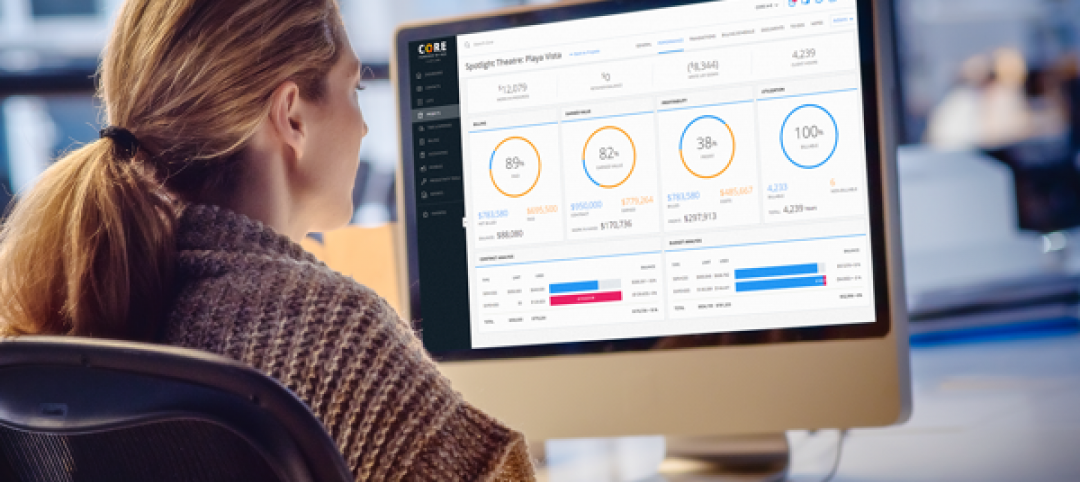It bears repeating that project accounting—the practice of accounting on a project-by-project basis—will give you transformative information about your company. With it, you’ll understand why and how your projects are succeeding (or floundering), and what you can do to ensure they stay on the right track.
There are different types of data you need to collect and synthesize to uncover these insights. These include time and expense entries, billing records, accounting metrics, and project management data.
While you technically can track and analyze all of your company’s data without a real project accounting solution, it’s not a wise choice. If you choose to just use spreadsheets, you’ll spend hours upon hours entering, formatting, and analyzing data. Copying and pasting creates a large margin for error, and if one of your formulas isn’t right, it’ll derail everything. Plus, whoever said that they actually enjoy using spreadsheets?
That’s why we’ll take a closer look at the type of technology you need to undertake project accounting without all of the stress.
1. Hassle-Free Time and Expense Tracking: In project accounting, it’s crucial to have data on how your staff spends their time. It’s impossible to understand efficiency, margins, and other important metrics without measuring the effort (in other words, time) that goes into your various tasks, phases, and projects. This is why it’s essential to have easy ways for your employees to log their time.
Look for software with an intuitive time entry process. Different formats of time cards and multiple timers will help, because users can choose whichever options are best for their work styles. Perhaps more importantly, cloud and mobile time entry is key. It allows for flexibility and minimizes any excuses that users might have for not submitting their time cards. If your software also has methods for automatic time tracking, even better.
Expenses play their role, too. Naturally, without tracking them, you won’t have an idea of the hard costs associated with your projects and their respective phases and tasks. Your project accounting software should give you the same ease of use for expense management as it does for time entry. The whole goal here is to eliminate any friction in the time and expense entry process so you have all the data you need.
2. Powerful Task Management: For the purposes of this article, task management gives managers insight into how employees spend their time.
When you assign employees to specific tasks within phases of your project, you can easily see what’s done, what’s underway, and what needs to be started. Furthermore, tasks are an extremely important unit of measurement within project accounting. When you match them up with time and expense entries, use them in allocation and forecasting, and so on, you get much more specific insight into how your projects are doing and what issues need to be addressed.
3. Streamlined Workflows: The platform you use should also have strong workflows for submittals and approvals. Instead of digging around to find what they need to sign off on, users should get notified whenever their approval is required. This applies to time and expense entries as well as items like estimates, invoices, time off requests, and more.
Workflows expedite the submittal-approval process while reducing any room for errors. They also provide more structure for your business. It’s easier to see who is doing what, and then use that data for analysis. You’ll get a better understanding of your business processes and see how your employees’ time relates to their tasks.
4. Accurate Allocation and Forecasting: Similarly, allocation and forecasting tools offer insight into your staff’s workload and availability.
Allocation enables you to assign tasks and expenses to different employees with a defined time duration. This, in effect, places expectations on your employees, which will help them manage their work. With a good allocation feature, you’ll get a single source schedule of all the work in your firm that needs to be done. When it comes to project accounting, allocation is also essential because of the role it plays in forecasting.
Forecasting lets you predict the workload and revenue for your projects based on allocation. When you view your current workload distribution, you’ll be able to plan accordingly.
5. Comprehensive Project Monitoring: Project monitoring enables you to oversee how different components of your projects are faring. You should be able to get both a wide and granular look at the progress of tasks and phases, the state of your budgets, and more. Ideally, your software will also automatically alert you when you approach milestones or are nearing your budget or allocation.
You should be able to easily keep an eye on project financial metrics like profitability, earned value, margins, utilization, realization, and the like. These sorts of key performance indicators will give you a solid understanding of how your projects are performing and where there may be trouble spots.
6. Real-Time Analytics: Your project accounting software isn’t complete without meaningful real-time data. After all, getting information you can use to increase profits is the entire point of this practice, and it’s much more helpful to have it while your projects are underway instead of just after the fact.
You should look for a solution that offers up-to-the-minute reports on every aspect of your business as well as dashboards that instantly show you key performance indicators. It’s much easier to steer your projects in the right direction if you just need to glance at a screen to know your earned value or utilization.
Now, note that these six features are just some important specifics when it comes to the technology that makes project accounting easy. They fit into a broader landscape of a solution that should provide billing, project management, time and expenses, accounting, and business intelligence, all in one platform. This sounds like a whole lot to ask, but when you find the right software, life will be simpler. You’ll get the insights you need to increase productivity and profits without getting a migraine from all of those spreadsheets.
About BQE Core:
BQE Core sets the standard for billing, time & expenses, project management, and accounting software for professional services.
Made by award-winning BQE Software, it gives professionals the speed, flexibility, and visibility they need to accelerate productivity, boost profits, and spend more time doing what they love. Core boasts comprehensive dashboards, native mobile apps, in-depth reports, a bevy of customizable features, and a revolutionary pricing structure.
To learn more about BQE Core or schedule a walk-through demonstration today, visit www.bqe.com/core.
More from Author
Steven Burns | Jun 15, 2018
4 project management mistakes to avoid at all costs
Helpful tips for managing projects more effectively
Steven Burns | May 8, 2018
5 tips to improve employee utilization (and morale)
Ways to increase productivity and revenue, while providing a supportive workplace environment
Steven Burns | Apr 3, 2018
4 reasons to take a closer look at your project metrics
We've all heard that data is important, but what role does it really play in your business?
Steven Burns | Mar 28, 2018
6 strategies to keep your project on budget
Here are six strategies to keep your projects on or even under budget.
Steven Burns | Feb 1, 2018
If you want to improve profits, look to the numbers
Simple changes to your daily habits can help increase efficiency and profits.
Steven Burns | Jan 3, 2018
4 networking strategies to grow your business
Follow these networking strategies to grow your architectural business with the work that you want.
Steven Burns | Dec 28, 2017
Why every AEC firm needs project accounting
While standard financial accounting is essential for the health of your business, project accounting helps drive the success of individual projects.
Steven Burns | Dec 12, 2017
3 tips to address the top causes of budget overruns
The most cited issues are communication breakdowns, inadequate fees for the work provided, and unrealistic deadlines or schedules.
Steven Burns | Nov 30, 2017
4 invoicing tips that'll actually make your clients smile
There are techniques you can use with your invoices that both highlight your firm’s value and make the process more convenient for clients.
Steven Burns | Nov 16, 2017
Growing your AEC firm through an exceptional client experience
Many small AEC firms don’t feel they have the time to focus and create clear marketing messages.
















